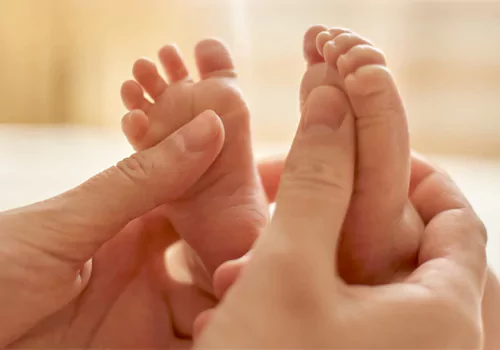Antidepressants Bad for Babies
The first study, published in Obstetrics and Gynecology, evaluated more than half of a million offspring over 11 years. Of these, just over 1% of the children were exposed to an SSRI during the first trimester of pregnancy. The study provided evidence for a two- to four-fold increased risk of cardiac and neural tube defects with specific SSRIs. Fetal alcohol spectrum disorders were also 10 times more likely in children exposed to an SSRI during pregnancy.
.jpg)
* The risk of cardiac abnormalities in children exposed to SSRIs during pregnancy has been shown in many other studies over the last 15 years, with varying degrees of significance. Overall, the absolute risk of abnormalities associated with SSRIs is still very small. Other studies have reported neurobehavioral disorders, bleeding abnormalities, craniosynostosis, and abdominal malformations associated with prenatal SSRI exposure.
* The second recent study reported a link between SSRI exposure during pregnancy and an increased risk of autism. This study, published in the Archives of General Psychiatry, found a two- to three-fold increase in autism spectrum disorders among children exposed to SSRIs during pregnancy.
* The risk was highest when SSRI exposure occurred during the first trimester of pregnancy. The study cannot prove cause and effect, and a link between a family history of depression and autism has already been established. SSRI exposure may have less to do with the development of autism than the genetic predisposition to depression and autism.
* This study was small, and its results should be interpreted cautiously. In both of the recent studies, the authors caution women not to change their mental health treatment plans without speaking to their physician.
* In general, it is prudent to avoid unnecessary exposure to medication or other potentially harmful chemicals or products during pregnancy. And, the overall safety profile of SSRIs during pregnancy is questionable. But, SSRIs are also very effective antidepressants.
* This class of drugs should not be removed from a mother’s possible treatment options if she requires intervention for prenatal depressive disorders. In other words, don’t throw the proverbial baby out with the bath water.
* Studies like the ones published recently might cause unwarranted alarm and prevent mothers from seeking mental health care during pregnancy. Clinicians should be vigilant to confirm a diagnosis of depression during pregnancy and communicate openly with mothers about the benefits, risks, and alternatives of treatment options. Ideally, every pregnancy ends with a healthy baby and a healthy mom.
* Mental health is a large piece of the puzzle for new moms and moms-to-be and the physical and psychological risks associated with depression during and after pregnancy might be worse than the risks of congenital malformations or developmental disorders to the fetus.




.webp)